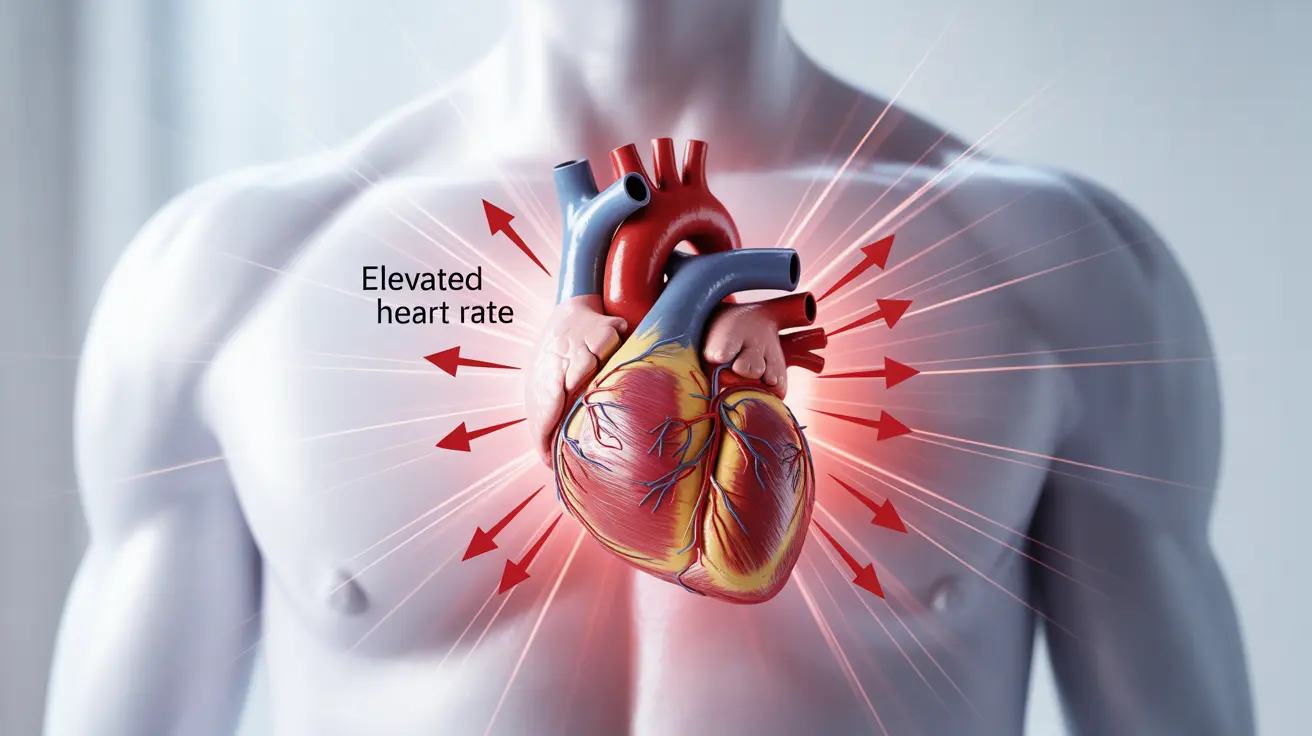Have you ever wondered why your heart beats fast when you wake up from a nap? This common occurrence can be unsettling, but understanding its causes and knowing when to seek medical attention can help put your mind at ease. Let's explore the reasons behind this phenomenon and learn what you can do about it.
Understanding Post-Nap Heart Racing
When you wake up with your heart racing after a nap, several physiological and environmental factors could be at play. Your body's natural sleep-wake cycle, stress hormones, and various lifestyle factors can all contribute to this experience.
Common Causes of a Racing Heart After Napping
Sleep Inertia and Hormonal Changes
During the transition from sleep to wakefulness, your body undergoes various hormonal changes. Cortisol, often called the stress hormone, naturally increases during this time to help you become alert. This surge can temporarily elevate your heart rate.
Dehydration and Blood Sugar Fluctuations
If you're dehydrated or your blood sugar is low when napping, your heart may beat faster to compensate. This is your body's natural response to maintain proper circulation and energy levels.
Environmental Factors
The temperature of your room, the length of your nap, and your sleeping position can all influence your heart rate upon waking. Overheating or sleeping in an uncomfortable position may cause your heart to work harder.
The Role of Stress and Anxiety
Mental health plays a significant role in heart rate variations. Anxiety about work, personal matters, or even the act of napping itself can trigger a faster heartbeat when you wake up. This creates a cycle where concern about your heart rate can further increase anxiety and heart rate.
Prevention and Management Strategies
Optimize Your Napping Environment
Create an ideal sleeping environment by:
- Maintaining a cool room temperature
- Using comfortable bedding
- Ensuring proper ventilation
- Limiting naps to 20-30 minutes
- Setting an alarm to prevent oversleeping
Lifestyle Modifications
Consider these helpful changes:
- Stay hydrated throughout the day
- Maintain regular meal times
- Avoid caffeine several hours before napping
- Practice relaxation techniques before and after napping
- Establish a consistent sleep schedule
When to Seek Medical Help
While a racing heart after napping is often harmless, certain situations warrant medical attention. Contact your healthcare provider if you experience:
- Persistent rapid heartbeat lasting more than 15 minutes after waking
- Chest pain or pressure
- Shortness of breath
- Dizziness or lightheadedness
- Regular occurrences of post-nap heart racing
Frequently Asked Questions
Why does my heart beat fast when I wake up from a nap, and is it a cause for concern?
A racing heart upon waking from a nap is often normal and related to your body's natural transition from sleep to wakefulness. While usually not concerning, persistent symptoms or accompanying chest pain should be evaluated by a healthcare provider.
What are the common causes of a racing heart after waking up from sleep or naps?
Common causes include sleep inertia, hormonal fluctuations, dehydration, blood sugar changes, anxiety, and environmental factors like room temperature or uncomfortable sleeping positions.
How does stress and anxiety affect heart rate during sleep and upon waking?
Stress and anxiety can activate your body's fight-or-flight response, releasing hormones that increase heart rate. This effect can be particularly noticeable during the vulnerable transition period between sleep and wakefulness.
What lifestyle changes can help reduce a racing heart when waking up from a nap?
Key lifestyle changes include maintaining proper hydration, limiting nap duration, creating an optimal sleep environment, practicing relaxation techniques, and establishing consistent sleep patterns.
When should I seek medical advice if I experience a fast heart rate after waking?
Seek medical attention if you experience prolonged rapid heartbeat, chest pain, shortness of breath, dizziness, or if the racing heart occurs frequently and interferes with your daily life.




